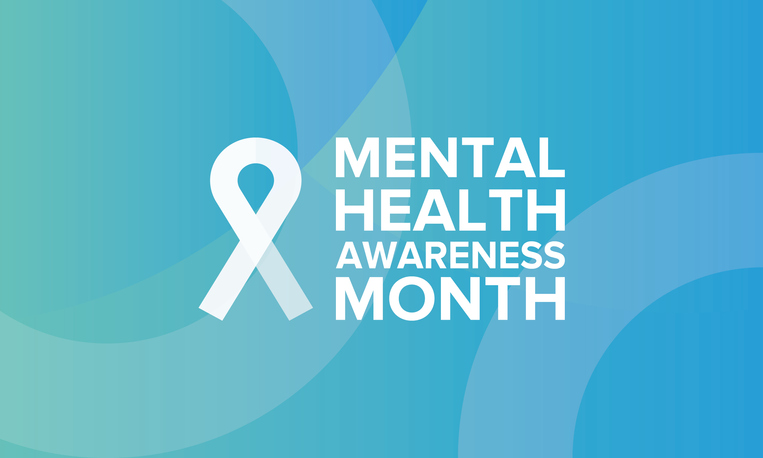
May: Mental Health Awareness Month.
Mental Health Awareness Month was first celebrated in May 1949. It was commemorated by the Mental Health America organization, which was then known as the National Committee for Mental Hygiene and then later as the National Mental Health Association before it got its current name.
The association was founded by Clifford Whittingham Beers. Beers, who was born in 1876 in Connecticut, was one of the five children in his family who all suffered from mental illnesses and psychological distress. All of them also went on to spend time at mental institutions and it was from his hospital admittance that he discovered that the mental health field had a notorious reputation for malpractice, maltreatment, and immense bias.
Beers went on to author “A Mind That Found Itself”, which is a bestseller even today. Gaining popularity and support from medical professionals, Beers founded the National Committee for Mental Hygiene. Beers and his colleagues at the Association wanted to find ways to make sure that mental health patients not only received the right care but also did not feel alone in their fight against mental diseases.
What is Mental Health?
Mental health is an important part of overall health and well-being. Mental health includes our emotional, psychological, and social well-being. It affects how we think, feel, and act. It also helps determine how we handle stress, relate to others, and make healthy choices. Mental health is important at every stage of life, from childhood and adolescence through adulthood.
What is Mental Illness?
Mental illnesses are conditions that affect a person’s thinking, feeling, mood or behavior, such as depression, anxiety, bipolar disorder, or schizophrenia. Such conditions may be occasional or long-lasting (chronic) and affect someone’s ability to relate to others and function each day.
Although the terms are often used interchangeably, poor mental health and mental illness are not the same things. A person can experience poor mental health and not be diagnosed with a mental illness. Likewise, a person diagnosed with a mental illness can experience periods of physical, mental, and social well-being.
Why is Mental Health Important?
Mental and physical health are equally important components of overall health. Mental illness, especially depression, increases the risk for many types of physical health problems, particularly long-lasting conditions like stroke, type 2 diabetes, and heart disease. Similarly, the presence of chronic conditions can increase the risk for mental illness.2
Can your mental health change over time?
Yes, it’s important to remember that a person’s mental health can change over time, depending on many factors. When the demands placed on a person exceed their resources and coping abilities, their mental health could be impacted. For example, if someone is working long hours, caring for an ill relative or experiencing economic hardship they may experience poor mental health.
How common are mental illnesses?
Mental illnesses are among the most common health conditions in the United States.
- More than 50% will be diagnosed with a mental illness or disorder at some point in their lifetime.
- 1 in 5 Americans will experience a mental illness in a given year.
- 1 in 5 children, either currently or at some point during their life, have had a seriously debilitating mental illness.
- 1 in 25 Americans lives with a serious mental illness, such as schizophrenia, bipolar disorder, or major depression.
What causes mental illness?
There is no single cause for mental illness. A number of factors can contribute to risk for mental illness, such as
- Early adverse life experiences, such as trauma or a history of abuse (for example, child abuse, sexual assault, witnessing violence, etc.)
- Experiences related to other ongoing (chronic) medical conditions , such as cancer or diabetes.
- Biological factors, such as genes or chemical imbalances in the brain
- Use of alcohol or recreational drugs
- Having few friends
- Having feeling of loneliness or isolation
What are some types of mental illness?
- Anxiety disorders, including panic disorder, obsessive-compulsive disorder, and phobias.
- Depression, bipolar disorder, and other mood disorders.
- Eating disorders.
- Personality disorders.
- Post-traumatic stress disorder.
- Psychotic disorders, including schizophrenia.
The Mental Health Stigma.
The COVID-19 pandemic has had a profound impact on the mental health of people of all ages. Now, more than ever, it is critical to reduce the stigma around mental health struggles, because that stigma often prevents individuals from seeking help.
Mental disorders are not caused by character flaws. They have nothing to do with being lazy or weak.The stigma around mental health and treatment has long existed, even though this has started to change. Still, people hesitate to seek help or even talk about it with their loved ones for fear of being judged and facing unnecessary backlash. Simple logic dictates that if one is hurt anywhere, one must seek treatment to get better. This applies to both our mental and physical well-being.
- If you are struggling to cope, there are many ways to get help. Call your healthcare provider if stress gets in the way of your daily activities for several days in a row.
- During times of extreme stress, people may have thoughts of suicide. Suicide is preventable and help is available.
- Free and confidential crisis resources can also help you or a loved one connect with a skilled, trained counselor in your area.
If you are in crisis, get immediate help:
- Call 911
- National Suicide Prevention Lifelineexternal icon: 1-800-273-TALK (8255) for English, 1-888-628-9454 for Spanish, or Lifeline Crisis Chatexternal icon.
- National Domestic Violence Hotlinexternal icone: 1-800-799-7233 or text LOVEIS to 22522
- National Child Abuse Hotlineexternal icon: 1-800-4AChild (1-800-422-4453) or text 1-800-422-4453
- National Sexual Assault Hotlineexternal icon: 1-800-656-HOPE (4673) or Online Chat external icon
- Veteran’s Crisis Lineexternal icon: 1-800-273-TALK (8255) or Crisis Chatexternal icon or text: 8388255
- Disaster Distress Helplineexternal icon: CALL or TEXT 1-800-985-5990 (press 2 for Spanish).
- The Eldercare Locatorexternal icon: 1-800-677-1116 – TTY Instructionsexternal icon
References for this flyer.
- https://www.cdc.gov/mentalhealth/learn/
- https://www.mhanational.org/mental-health-month#
- https://medlineplus.gov
- https://nationaltoday.com/mental-health-awareness-month/#faqs
Now, for the hard part; I’ve been thinking about submitting a health flyer on the subject of mental health for several months. Finally, with this being May, THE Mental Health Month, I’m doing it.
My problem with getting this out is that I feel that I should also admit that I have a mental illness. I have been diagnosed with clinical depression. No, it isn’t because of the problems associated with the COVID-19 mess, although that didn’t help. I was diagnosed in August 2019.
I approached one of the docs at the VA because I had been feeling the symptoms for several years, but they were occurring more often.
The more I read, the more I believe the doc just might be right. Going through this has been like going through the 7 stages of grief. I’m not sure where I am in the stages. It seems that my academic and emotional selves won’t agree. I still have some denial, guilt, & depression about my depression. Most of the time, I just want to be alone because I don’t want to slip up and exhibit a symptom. So, I guess I’m hoping for an upward turn (stage 5).
I don’t know when I’ll get back to “normal” & return normal activities.
I just know that I’m not ready yet.
So, if any of you are having mental health problems, please know, you’re not alone.

